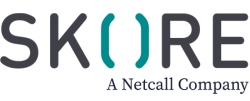Automation and Technology in Retail
This blog was written by Joe Williams
In this series of blogs, we are looking at what rising costs could mean for the retail industry in 2023 and sharing some useful tips on where you can begin to look for cost savings in your organisation.
Let’s start with the most important part of any business – your people. Having staff and paying for their time is often the most costly part of running any business. The retail sector is no different in that respect and with it being typically the biggest cost, it’s often a great place to start and look for savings. We know that technology has made our lives move faster and we are all more connected. Retail businesses can also do more to leverage the advantages that technology and automation can provide.
Getting the most from your staff’s time and making them as efficient as possible within their roles, can generate huge savings and also increase employee satisfaction. Employees may have specific manual tasks, often short and simple in nature that they just ‘get on with’ and do regularly. But these simple manual tasks can quickly add up over time and may be a good opportunity to introduce a form of technology and/or automation.
This is a chance for you to look at your processes. If you’ve mapped out your processes as we discussed in our previous blog, take some time to think back to your process map here. Ask yourself – What triggers them to do this task? Could that trigger be inputted into a piece of technology that would then automate the activity? What would be generated as a handover back to the employee? And even – is this task even really necessary?
Most employees get into strong working habits and may not see the bigger savings that automating these simple tasks could bring. By allowing technology to complete simple and repeatable tasks, it frees up the time for the employee to focus on stronger value add activities, such as providing great customer service. Using technology and more specifically the automation of tasks by a machine, can also reduce the risk of human error and speed up business activities. Making your business appear more reliable and easier to deal with.
It is essential to take into consideration the need for quality products and customer service when looking for automation opportunities. Some tasks may be too complex, varied or simply better done with a human-to-human interaction.
Most of us will recognise that Digital Transformation has been a key buzzword in the retail industry for many years and relates to the use of digital experiences for both colleagues and customers. It’s an expression used to describe a multitude of digital projects across organisations, but in this case, we are referring to the following.
‘How a customer’s shop has changed due to technology and so how retail businesses should operate.’
Innovative technologies such as ERP systems, touchscreen kiosks, barcode scanners and even artificial intelligence and mobile apps are all worthwhile exploring for your retail business. However, all of these technologies demand proper consideration and implementation, to be successful. Again, when looking at implementing any technology system or automation, it is useful to understand the effect it will have. Where is the return on investment? How will it interact with people and customers? All of these and many more are valid questions that can be answered through process mapping and analysis.
Skore is a purpose-built process improvement platform. It is helping retail businesses to better understand their process and how their own or third-party systems and technologies relate. With Skore you can easily run reports on how systems are used and create to-be process maps that show the value that any new technology and/or automation project could bring.
If you’d like to chat about how Skore can help you assess the impact of technology, or just find out more about the platform please get in touch joe.williams@getskore.com
